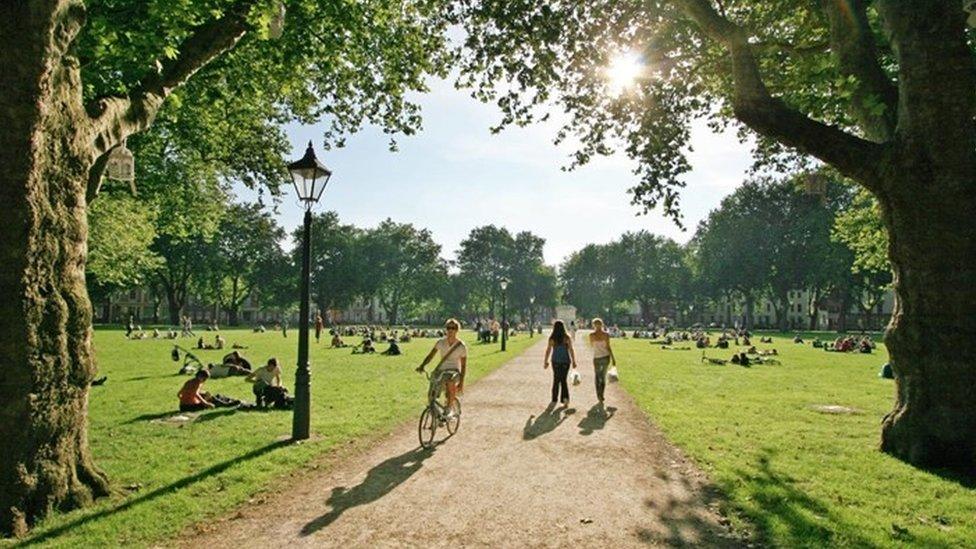Bristol clean air zone: Polluting drivers to be charged to enter city centre
- Published
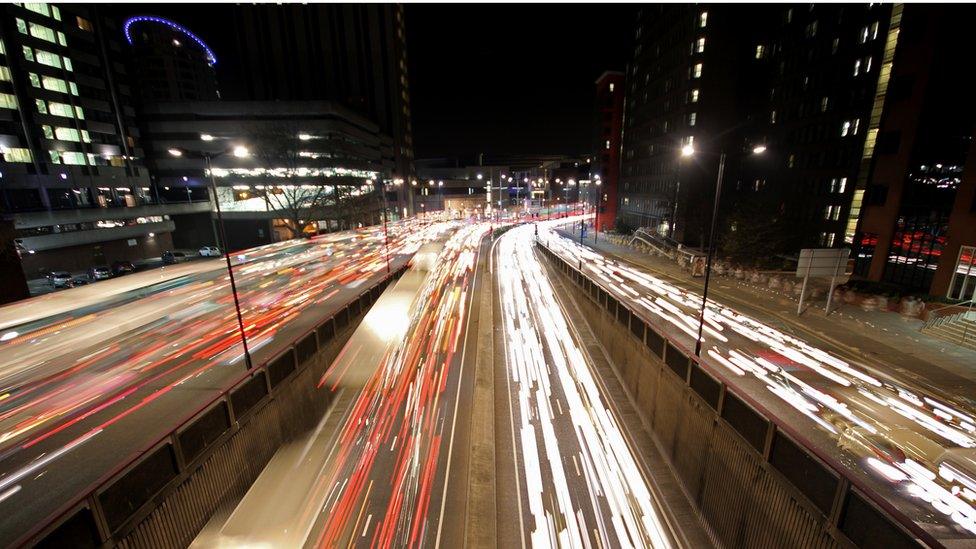
Polluting vehicles will be charged to enter Bristol city centre
Motorists are going to be charged to enter a clean air zone (CAZ) in Bristol.
The council wanted to avoid forcing drivers of polluting vehicles to pay to enter the city centre.
It hoped changes introduced to help social distancing and encourage walking and cycling would satisfy a government demand for improved air quality.
But the city's mayor Marvin Rees has announced a charging scheme will go ahead.
How much drivers would have to pay has not been decided, according to the Local Democracy Reporting Service.
Mr Rees made the announcement during a Facebook Live event on Wednesday, saying a part of central Bristol would become a "small CAZ D" where drivers of all polluting vehicles - the ones which produce the most nitrogen dioxide - would be charged.
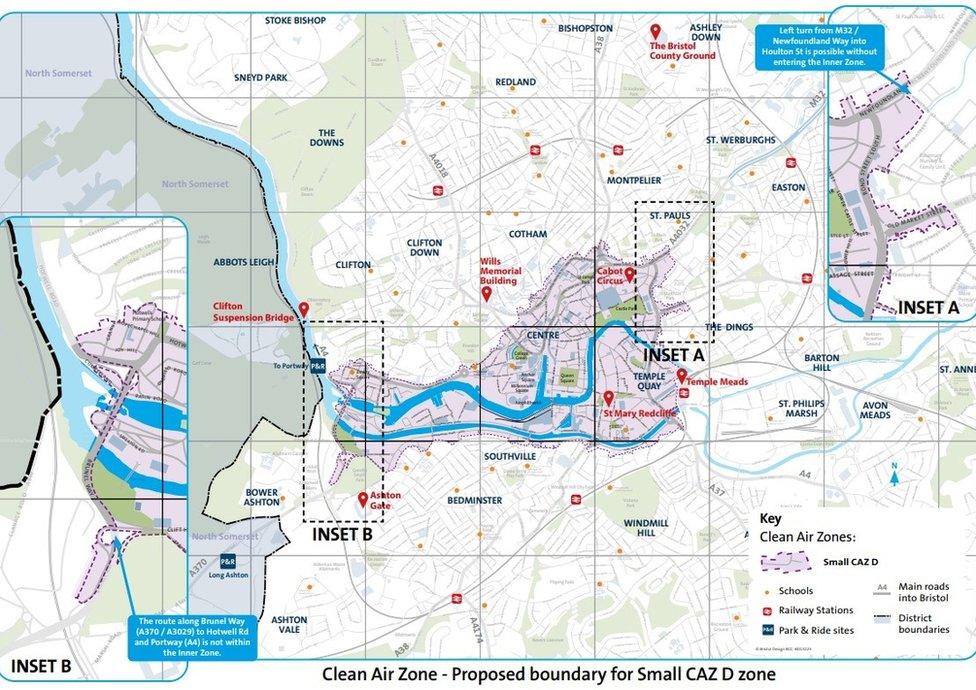
The "small zone" refers to the boot-shaped area in the heart of the city previously set aside for the council's proposed diesel ban
The other option the council looked into was a "medium CAZ C", a larger zone where drivers of polluting commercial vehicles - but not private cars - would have to pay a fee.
The government has told Bristol City Council it needs to find the fastest way to get the city's air pollution levels within legal limits.
Mr Rees said the modelling the council had carried out showed the smaller charging zone would help the authority comply with the rules in the quickest possible time.
But he added he was concerned about the impact on household and business income, describing the charging zone as "a blunt instrument".
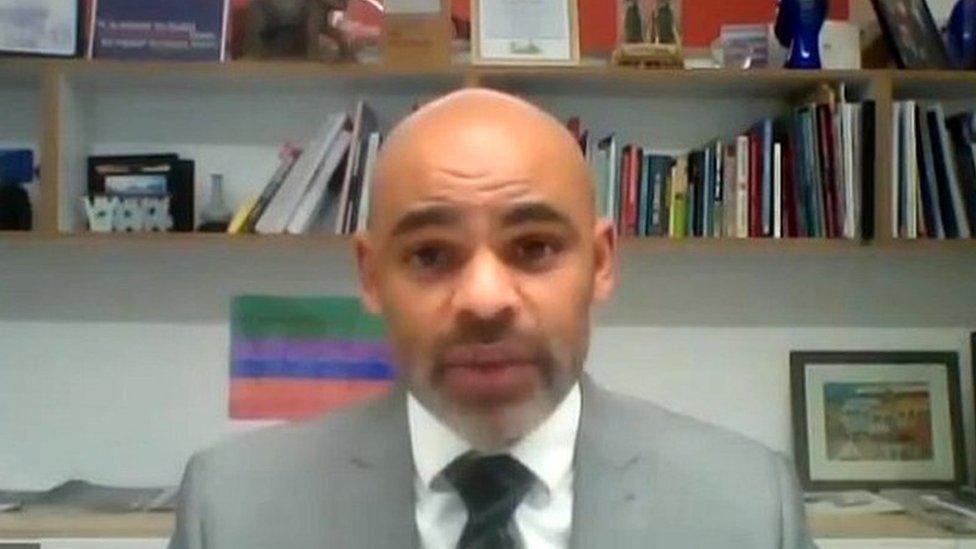
Bristol's mayor said the government had told the city to improve air quality, but he was worried about household and business income
He said: "As well as taking action to deliver that compliance, we will be looking at how we can support people through that transition."
The small CAZ D would cover the area formerly set aside for the council's proposed diesel ban, which was rejected by the government in 2019.
A clean air scheme must be in place by October to comply with rules over nitrogen dioxide limits.
Related topics
- Published14 May 2020
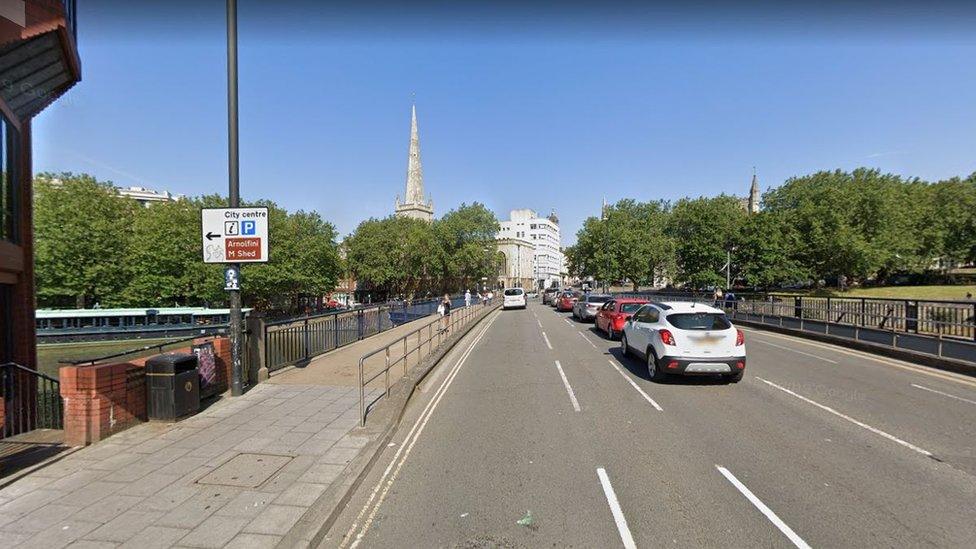
- Published6 November 2019
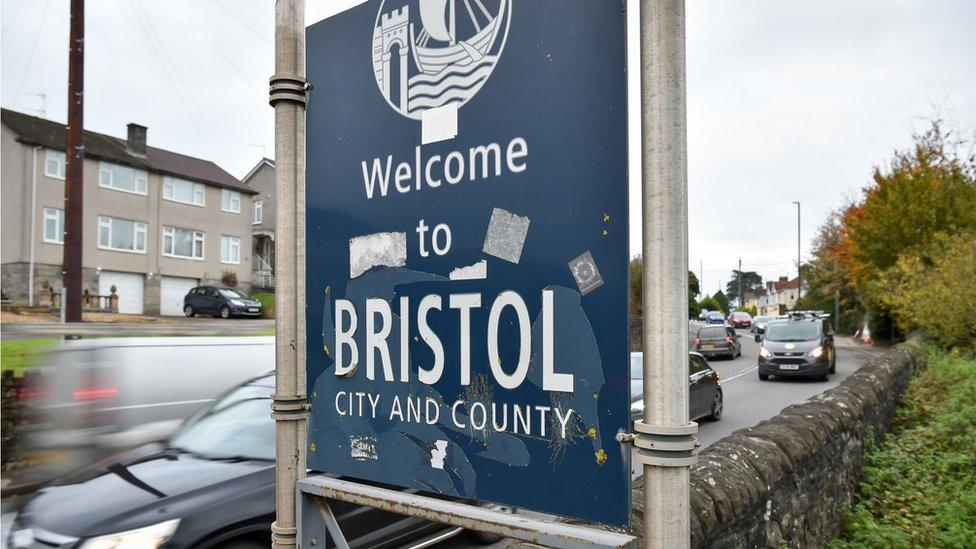
- Published20 June 2019
